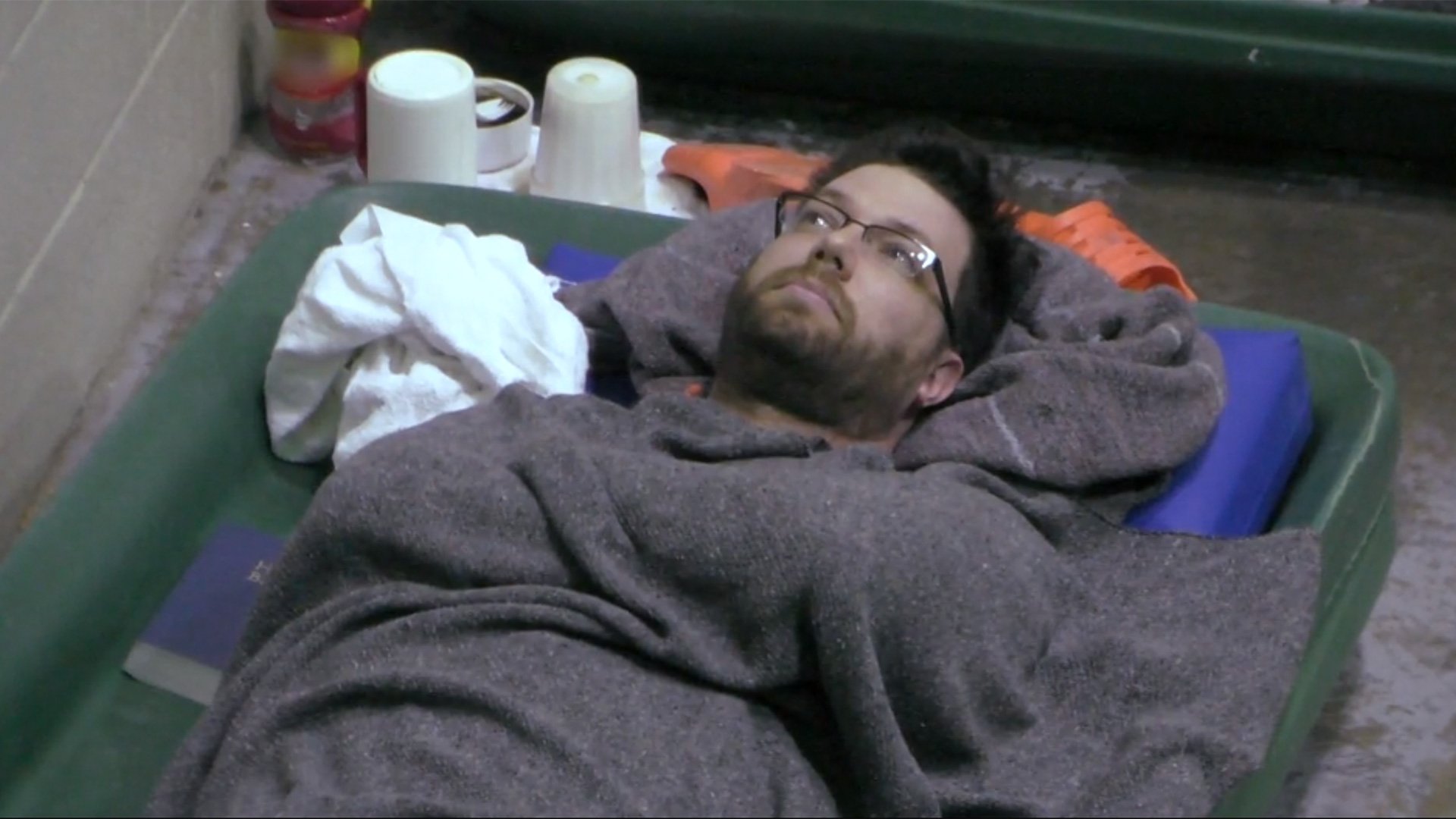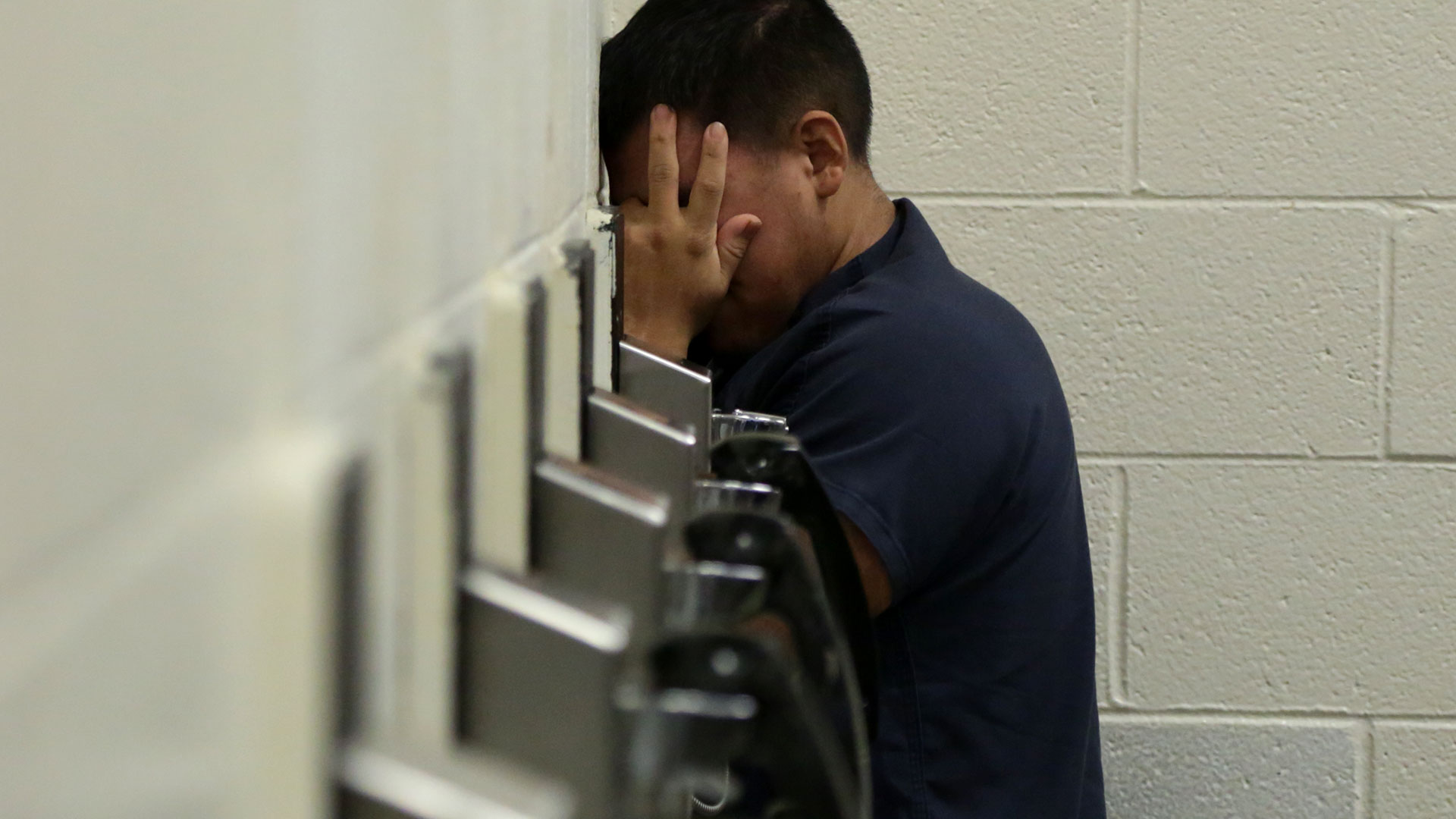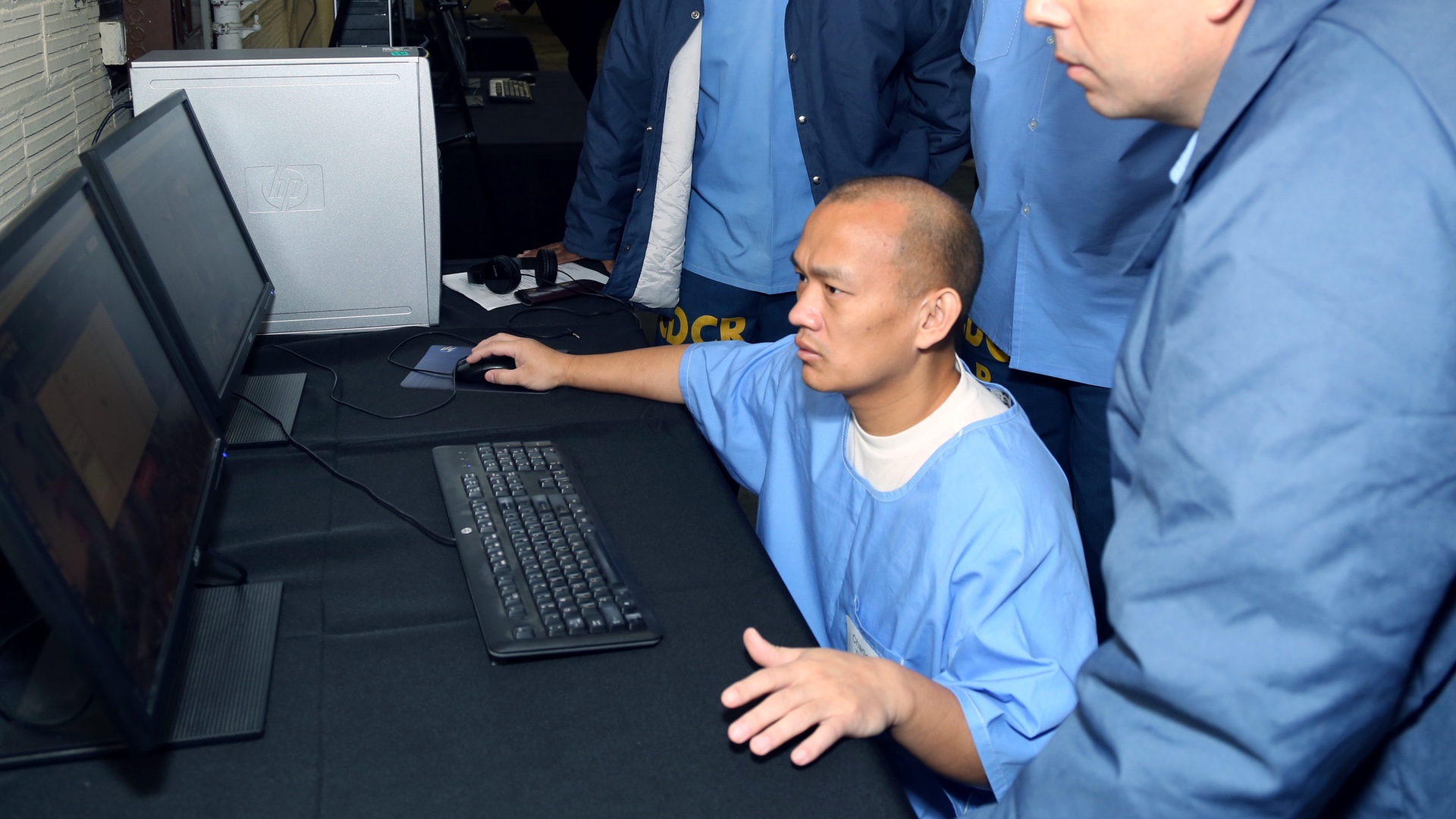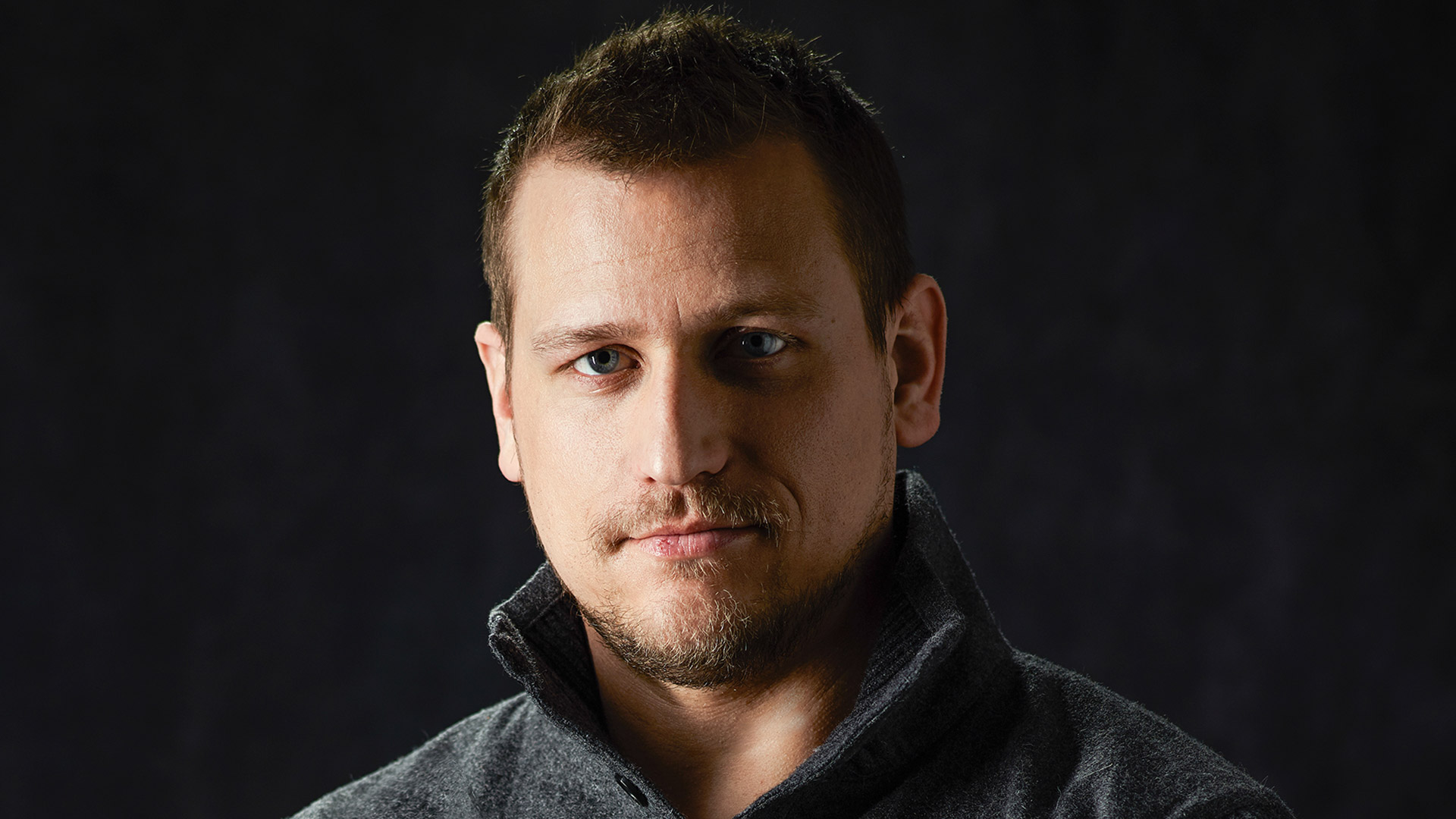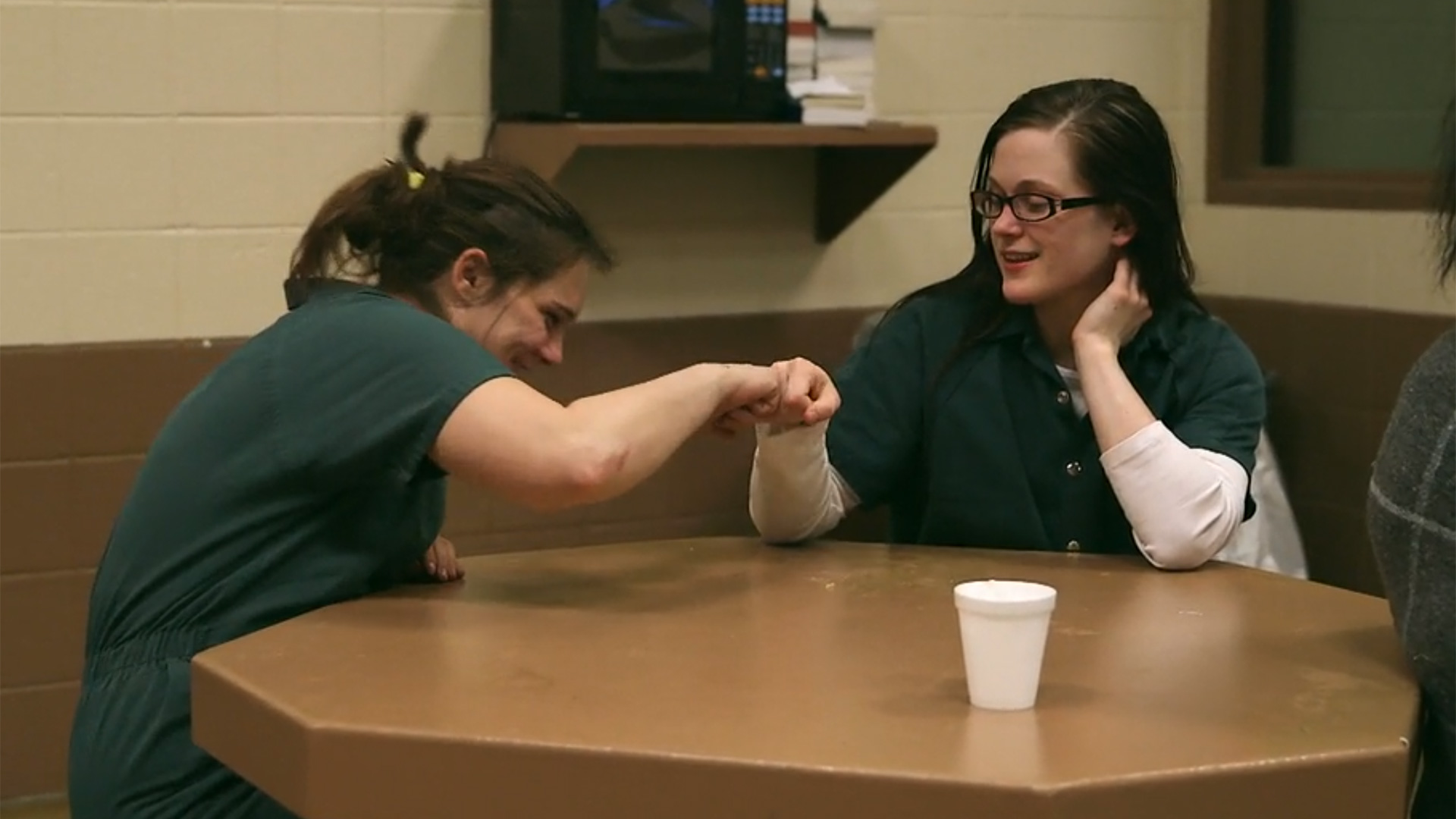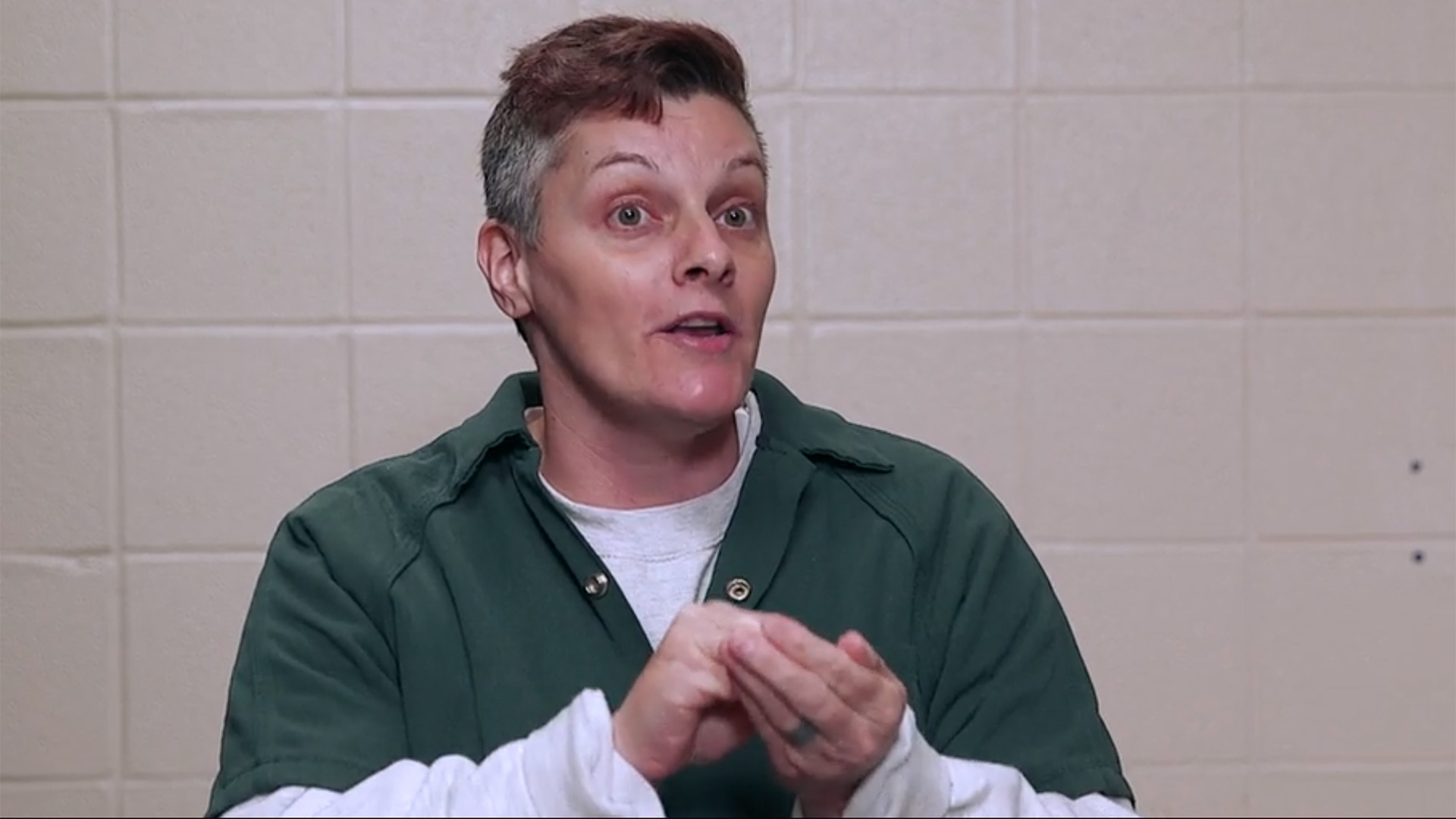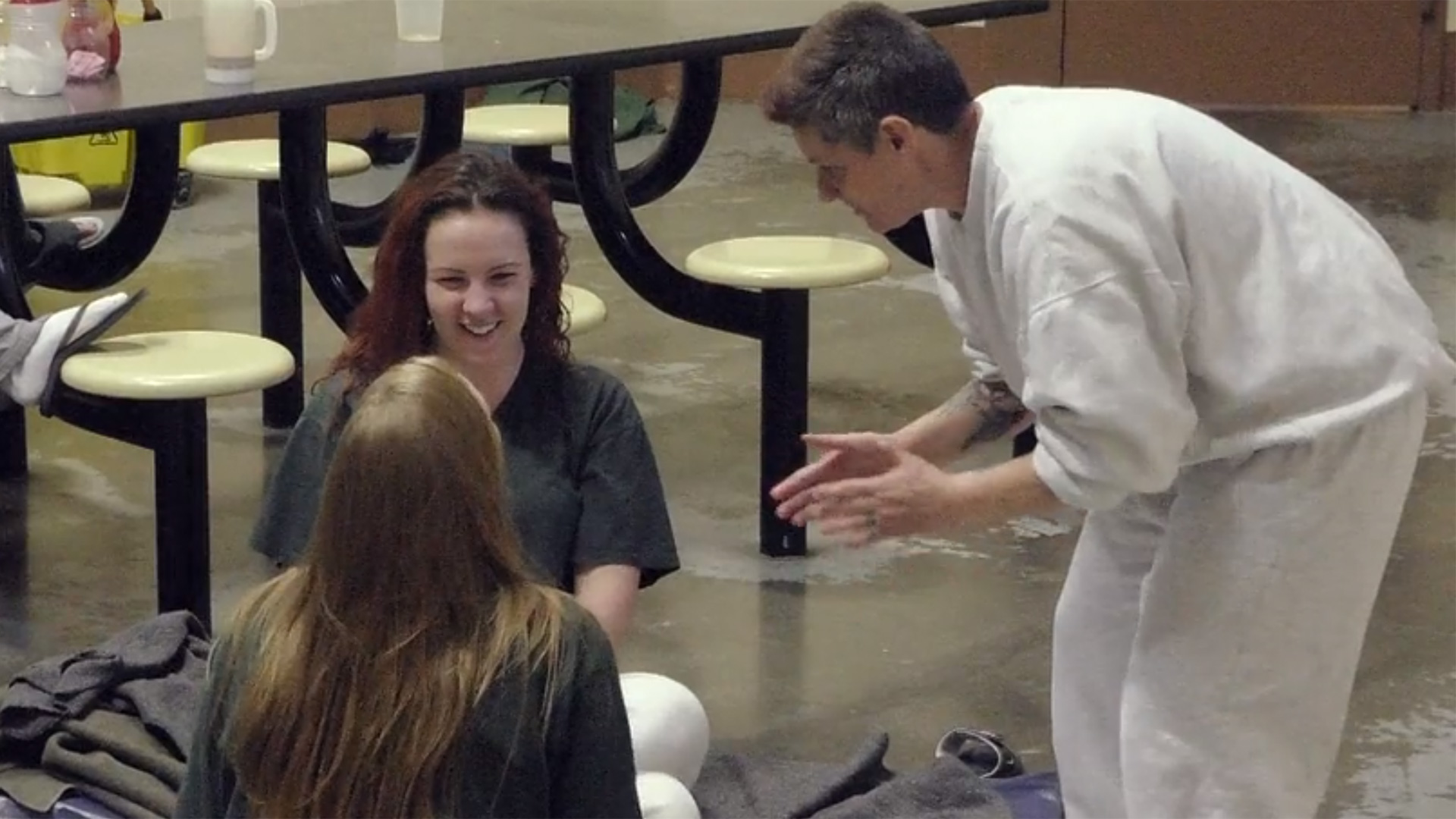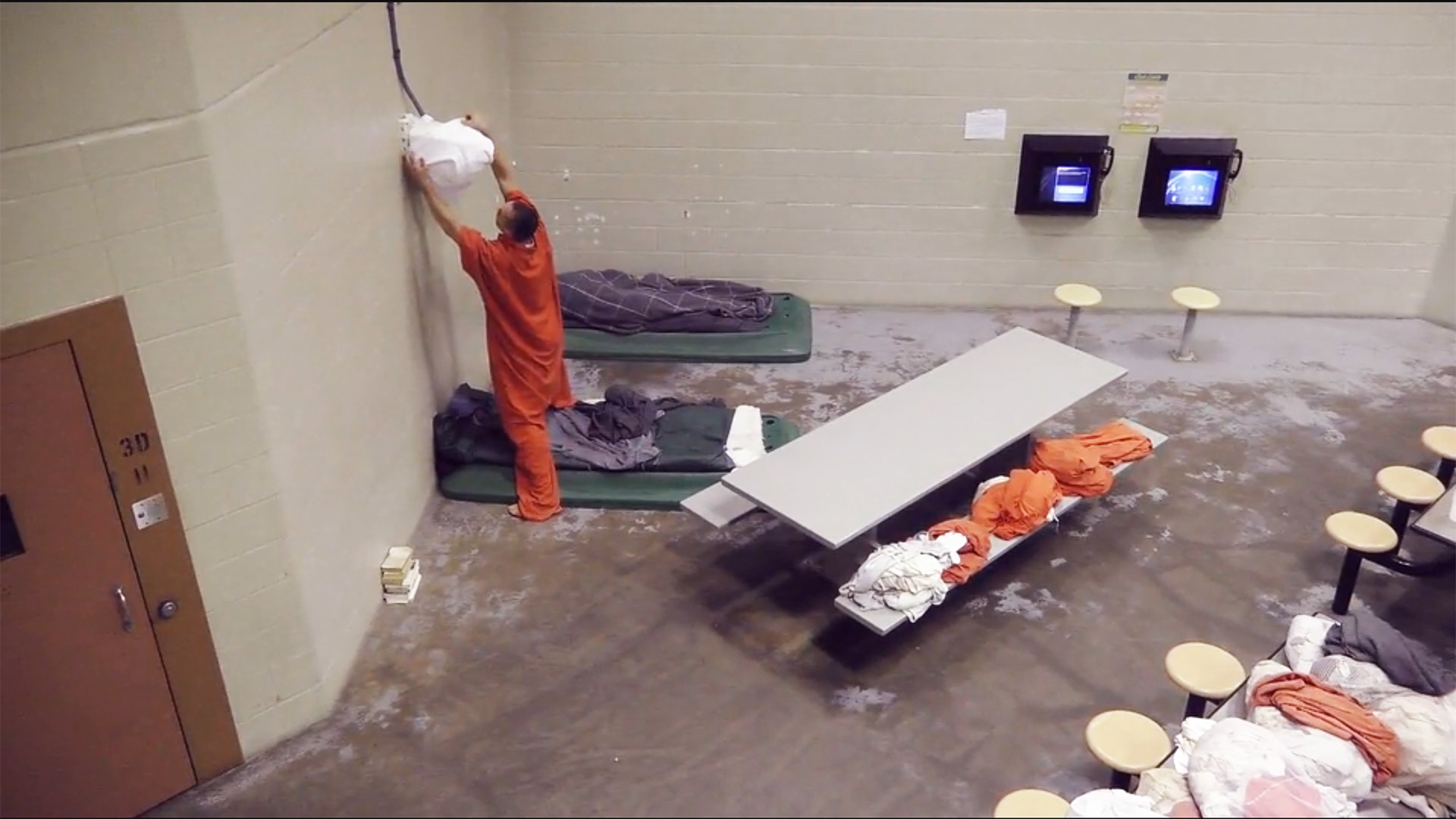The series "60 Days In" takes everyday people and places them in prison for 60 days in order to discover what really goes on behind bars and to recommend ideas for change to the authorities.
But participants get the benefit of something regular inmates don't: Training.
The show's third season takes place in Fulton County Jail in Atlanta, a 2,500-imate prison plagued with drug and gang problems. As in the first two seasons, participants received training from Sgt. Aaron Bell, Senior Training Officer at the Penitentiary of New Mexico. In addition, they also got to meet with Zac, whose experience in the program gave him valuable insight into how to survive behind bars.
WATCH: Binge all of Season 6 now, no sign in required.
Here's what Zac told them to do to keep safe:
#1.
Don’t show weakness.
Image is everything when you're incarcerated. So how did Zac manage to stay on the inmates' good sides?
"You kind of tried to keep to yourself and let them come to you, and they'll seek you out and they'll start to get to know you, because they see that, hey, he's chill, he's minding his own business, he's not trying to do anything crazy," he said.
The process may take some time to unfold, but it will pay off, he said.
"There were some inmates that got bullied and had to give away commissary items or give away credits to use the bathroom or use the shower. I never had that issue. I never even saw anything like that. I'd just walk up and say, ‘Hey, okay if I use your bathroom?' ‘No, man, go ahead,' so I walked in and used the bathroom. Simple as that."
#2.
Place your trust carefully.
Not everyone in jail is out to get you, but that doesn't mean it's safe to let down your guard. Incarceration comes with its own education, and it's important to remember that, in jail, the inmates are the experts.
"I mean, the inmates knew more about the law than I did, and that's pretty much common across the board. Most inmates who have been in the system for a while know more about the law and legal practice than most law enforcement officers."
Zac knows from firsthand experience how dangerous it is to place your trust in an inmate. In his case, though, he got lucky.
"Like with my bunkies making hooch in our bunk... I said, 'Hey, you're not going to let anybody else take the fall for it?' He said, 'No, man. If it comes down to it, I'll take the fall, I'll take the hit for it. I'll admit it.' That wound up happening and, you know, he did get caught with it, he did get busted for it. We all nearly had to take the fall, but luckily he manned up and did what he said he was going to do, and he took the fall for it."
#3.
Stay out of business that doesn’t directly involve or concern you. Just listen.
It can be difficult to maintain a low profile in a new and stressful situation like jail. Emotions run high, and can sometimes get the best of even the most well-prepared individuals. Zac's background as a Marine gave him a unique advantage.
"I started out keeping my head low, keeping quiet, kind of ignoring people, keeping to myself, letting them get to the point where they trusted me. You know, that's something that I learned from the military. When you check into a new unit or when you're at boot camp, you're trying to not get noticed, and that's kind of what I went off of in jail, because the less you're noticed, the easier it is to not get caught up in something stupid.
"You know, they say don't rock the boat, don't make waves, stay in your own lane. That's something that you learn in the military right at the beginning. You don't want to be the guy that everybody knows your name, because if everybody knows your name, then you're always picked for the extra work, you're always picked for the extra punishment."
The same holds true for jail, at least at the start.
#4.
Don’t think you’re better than anyone.
Don’t think you’re tougher than anyone.
Show respect to everyone.
A prickly attitude can spell trouble for the newly incarcerated. Participants are advised to keep a low profile, do their best not stir things up, and never, ever call someone the b-word.
"There were certain words that we were told not to use, which I very famously used one and had a situation... I mean, it worked out better for me than I think it would have for anybody else just because of me, the way I had conducted myself to that point and the camaraderie that I had already established with those guys."
But respect is a two-way street. If participants want to learn something that will really help make a change, they'll need to earn respect as well as show it.
"If you go in and you try to act like you're the new kid on the block, you're the new big dog and all that other stuff... you know, it came down to just being careful about how much you got involved and how quickly you got involved, because if you tried to get involved too quickly, people looked at you suspiciously and suspected that you were actually there looking for information."
#5.
Don't get caught up in criminal activity.
It may seem like a no-brainer, but it's not as easy to avoid breaking the law when incarcerated as one might think. Drugs are readily available, fights can break out at any moment, and with the pressure that participants are under to fit in with the inmates, they are required to walk a very fine line.
"Not engaging in criminal activity, there are ways around it. I got offered drugs the very first day I was in my second pod. They said, 'Hey, you get high?' I said, 'Not in here,' and people didn't question it because they knew that I was in on an out-of-state warrant. I didn't want to pick up charges in that state by doing something illegal in that state, and that was a common thing for a lot of guys who were on out-of-town or out-of-jurisdiction warrant holds. They were just trying to not pick up any extra charges on their way back to their original charge.
"The big thing I had to do was make sure that they realized that I wasn't a rat. There were times where my guards would be on their walkthroughs, and we had codewords. The inmates had codewords to let people know that there was a guard inside, and sometimes the guards were loud when they came in and other times they would sneak in. If you saw a guard, you were supposed to yell out the code. One of the words was 'twelve,' and they were just random words that people would use to say, 'Hey, this guard's in the pod.'
"To keep suspicion off of me - I wasn't covering up anybody doing illegal activity - but if I saw a guard and I was the first one to see it, I'd say, 'Twelve,' or whatever the word was, because that way people know, 'Hey, he's not just going to let us get caught,' and because of that, I was able to see more of the criminal activity that I saw, that you wouldn't have been able to see if they had thought, 'Hey, he doesn't care if we get caught or not.'"
The Atlanta participants have a daunting task to perform, and they must perform it under even more dangerous circumstances. Only time will tell if they will be able to make a difference in Fulton County, but there's never been a group as thoroughly prepared to spend 60 days inside. Does Zac have any final words of advice to pass along?
"The biggest thing I would say is don't do stupid things and you won't pay a stupid price and get stupid prizes, you know? I mean, play stupid games, get stupid prizes."

